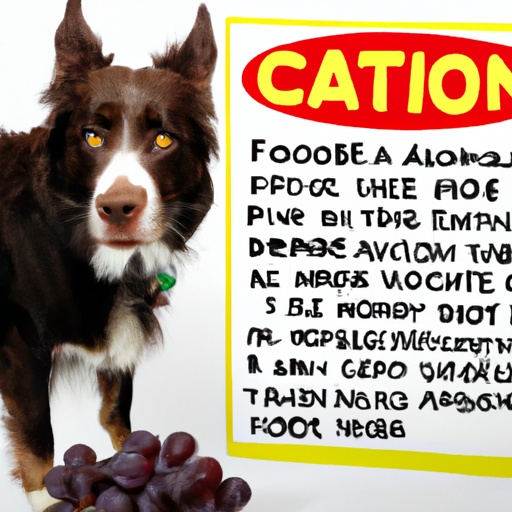“`markdown
What Food is Dangerous for Dogs
As a caregiver, you always want the best for those under your care, and that includes your furry friends. This guide will help you understand which foods are harmful to your beloved pets, specifically dogs.
1. Chocolate and Caffeine
Chocolate and caffeine contain substances called methylxanthines, which are found in cacao seeds. When ingested by dogs, methylxanthines can cause vomiting, diarrhea, panting, excessive thirst and urination, abnormal heart rhythm, tremors, seizures, and even death. Note that darker chocolate is more dangerous than milk chocolate.
2. Alcohol
Alcohol has the same effect on a dog’s liver and brain that it has on people, but it takes far less to harm them. Just a little beer, liquor, wine, or food with alcohol can be harmful. They can experience vomiting, diarrhea, breathing problems, coma, and even death.
3. Grapes and Raisins
The specific reason that grapes are toxic is not yet known. They can cause kidney failure in dogs, and just a small amount can make a dog sick.
| Food | Effect |
|---|---|
| Chocolate | Diarrhea, seizures |
| Alcohol | Breathing problems, coma |
| Grapes | Kidney failure |
4. Xylitol
Xylitol is a sweetener used in many products like gum, candy, baked goods, and toothpaste. It can cause insulin release in dogs, which can lead to liver failure.
5. Onions and Garlic
Onions and garlic can kill red blood cells in dogs. An occasional small dose is probably OK. But eating a lot just once can cause poisoning. Symptoms may not appear for a few days.
FAQ
Q: Can my dog eat a small amount of chocolate?
Not advisable. Even small amounts of chocolate can cause serious harm.
Q: My dog ate a grape, should I be worried?
Yes, even a small grape can cause harm. Consult your vet immediately.
Q: Can I give my dog alcohol as a joke?
No. Alcohol is harmful to dogs and can lead to serious health problems.
Q: Is garlic harmful to all dogs?
In large amounts, yes. But small, occasional doses are likely harmless. Always consult with your vet.
Remember, you are your dog’s first line of defense. Your vigilance can ensure your furry friend lives a long and healthy life.
“`



